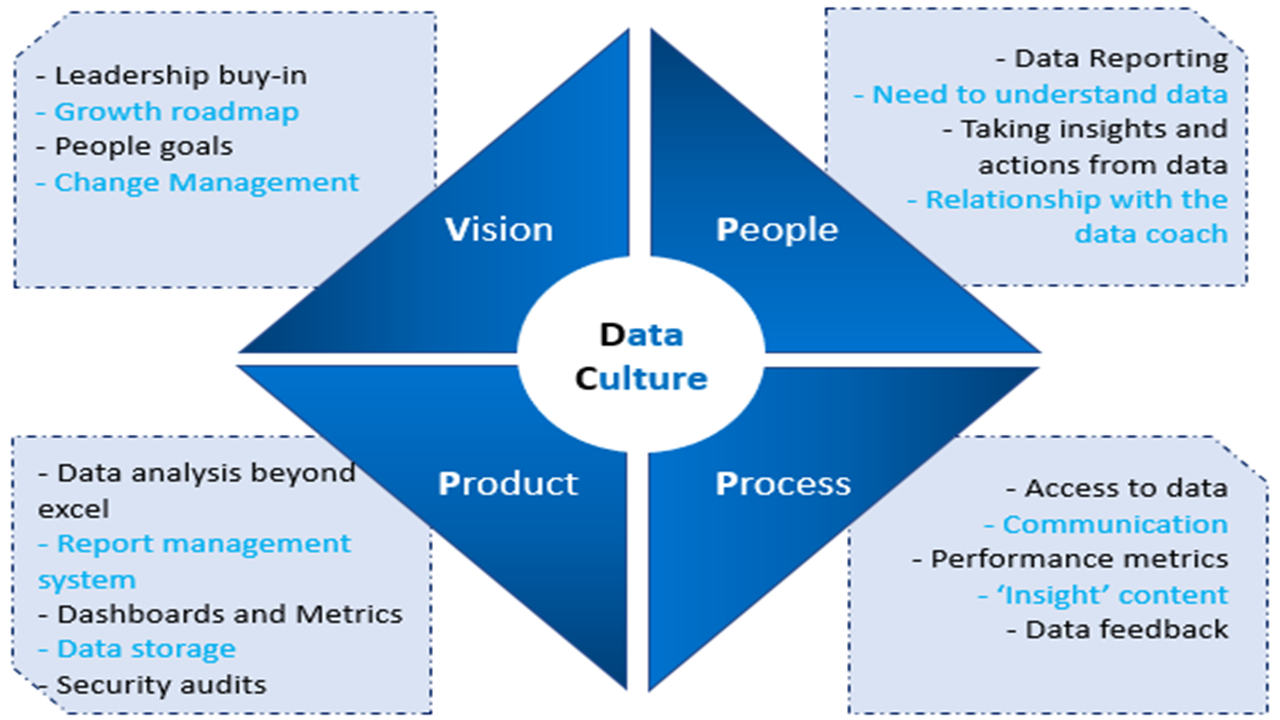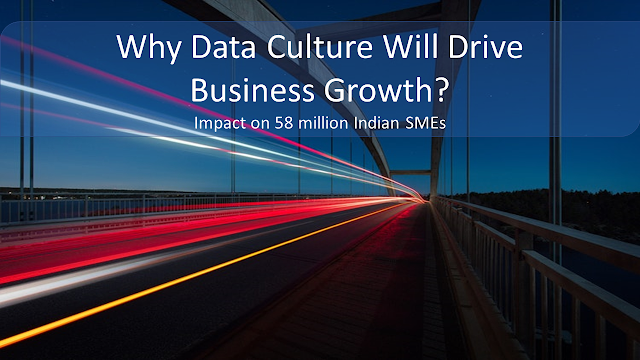Read time: 10 minutes
Why are we talking about data culture?
Drive for the adoption of data and analytics is going fast in Indian enterprises. This is so much evident with the fact that analytics and business intelligence (BI) software market is enjoying the growth of 18.1 percent increase year over year [1] (Gartner, June 2018). Further, “Indian organizations are shifting from traditional, tactical and tool-centric data and analytics projects to strategic, modern and architecture-centric data and analytics programs,” said Ehtisham Zaidi, principal research analyst at Gartner.
Still, is it so linear shift for enterprises towards the adoption of such technological advancement? There was a time when technological limitations were the major roadblocks to derive maximum benefit out of analytics and bring pace into business growth. However, the realization has changed off late, it is the cultural shift which can bring in speed through the adoption of data and analytics.
Yes, the problem arising from Company’s culture is far more impactful than the other. It is more of a company’s capacity to bring cultural change to the last man standing defines at what speed innovation, market entry, market share, talent will grow. Organizations must evolve their traditional approaches. Habits do not change with the change in technology or processes, instead, it goes through a continuous process of acceptance, belief, knowledge, and application for results. Thus, it is the Data Culture which defines the growth projectile of enterprises.
What is Data Culture?
An interesting thing about a culture is that everyone needs to be part of it – be it C-suite executives, or the frontliners. It is the entire set of people involved in an organization needs to accept, and believe in the benefits of nurturing a data culture. A data analyst should no more be working in silos and preparing graphs and building insights, instead, the role becomes more inclusive and that of a coach. The analyst should be seen as a sage by the people and thus there should be a seamless working relationship across the board. Wherever possible, people should appreciate and see the need of relying on data and analytics for decision making – after all, it is the language of a business!
Organizations can consider re-evaluating their data security policies and should identify possibilities of democratizing data as much as possible while staying within the guard. A lot depends upon the top leadership who leads the change by setting examples of making decisions not based on intuition or experience alone. Few aspects are critical to be considered in this aspect:
– The talent structure in relation to the data reporting
– Training on identifying data relevant to their current job and growth roadmap
– Training to build acumen to derive insights from the various representations
– Work relationship with the data scientists and analysts
SMEs of India are moving fast towards building data and analytics capabilities, thus, need to build the data culture is inevitable for maximizing the result of such investments. They are at the core of the Indian economy. As per, MSME Annual Report, 2017-18 [2] India houses 58.5 million SME establishments, where 59.48% are located in rural areas and 40.52% are in urban locations. Their contribution to GDP is at 8% and are growing consistently at the rate of 10% YoY. [3] As per the nature of their activity, 31% are engaged in manufacturing, 33% in services, and 36% in trade. They are creating 120 million jobs, out of which 35% are employed in the trade sector, 33% in services, and 32% in the manufacturing sector.
These figures are sufficiently indicating towards a faster economic growth once adoption of data and analytics takes up speed in this segment. At the same time, building a data culture is even more challenging for SMEs. An obvious reason is their traditional approach to data management and decision making. To grab the pace of growth, they can’t afford to rely totally on their traditional approaches anymore. Here is a fundamental approach to building a data culture.
 Copyright © 2021, Cypax Solutions LLP
Copyright © 2021, Cypax Solutions LLP
These four aspects demand to be at focus while working towards building a data culture. These create a difference between leading and lagging organizations. Imperative of data and analytics has become paramount in the ecosystem of SMEs as well. It is an omnipresent reality which means a healthy data culture leads to a healthy business
Want to know how Cypax can be of assistance?
Contact
Nishant Bhushan Consulting – L&D |
—————————————————————————————————————————————————————-
Forward notes:
[1] https://www.gartner.com/newsroom/id/3877272
[2] https://msme.gov.in/sites/default/files/MSME-AR-2017-18-Eng.pdf
https://www.mycii.in/KmResourceApplication/57429.MSME.pdf
https://yourstory.com/2017/12/big-data-india-smes-opportunity/
https://www.wholewhale.com/tips/data-culture-building/

